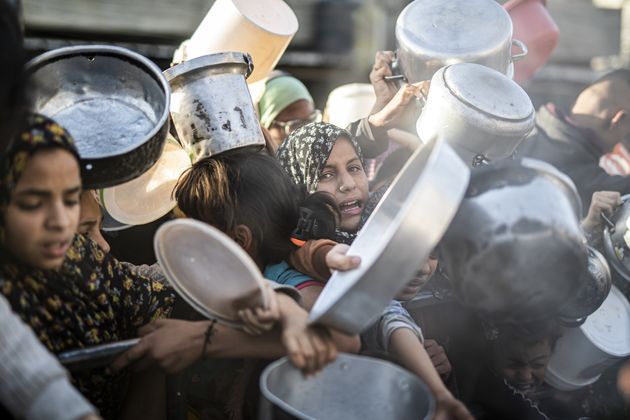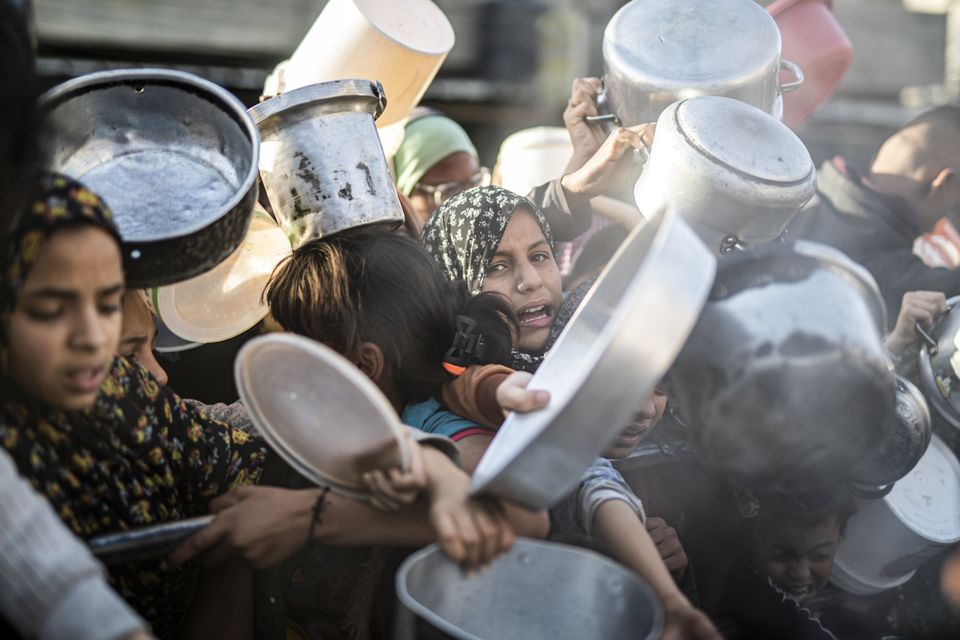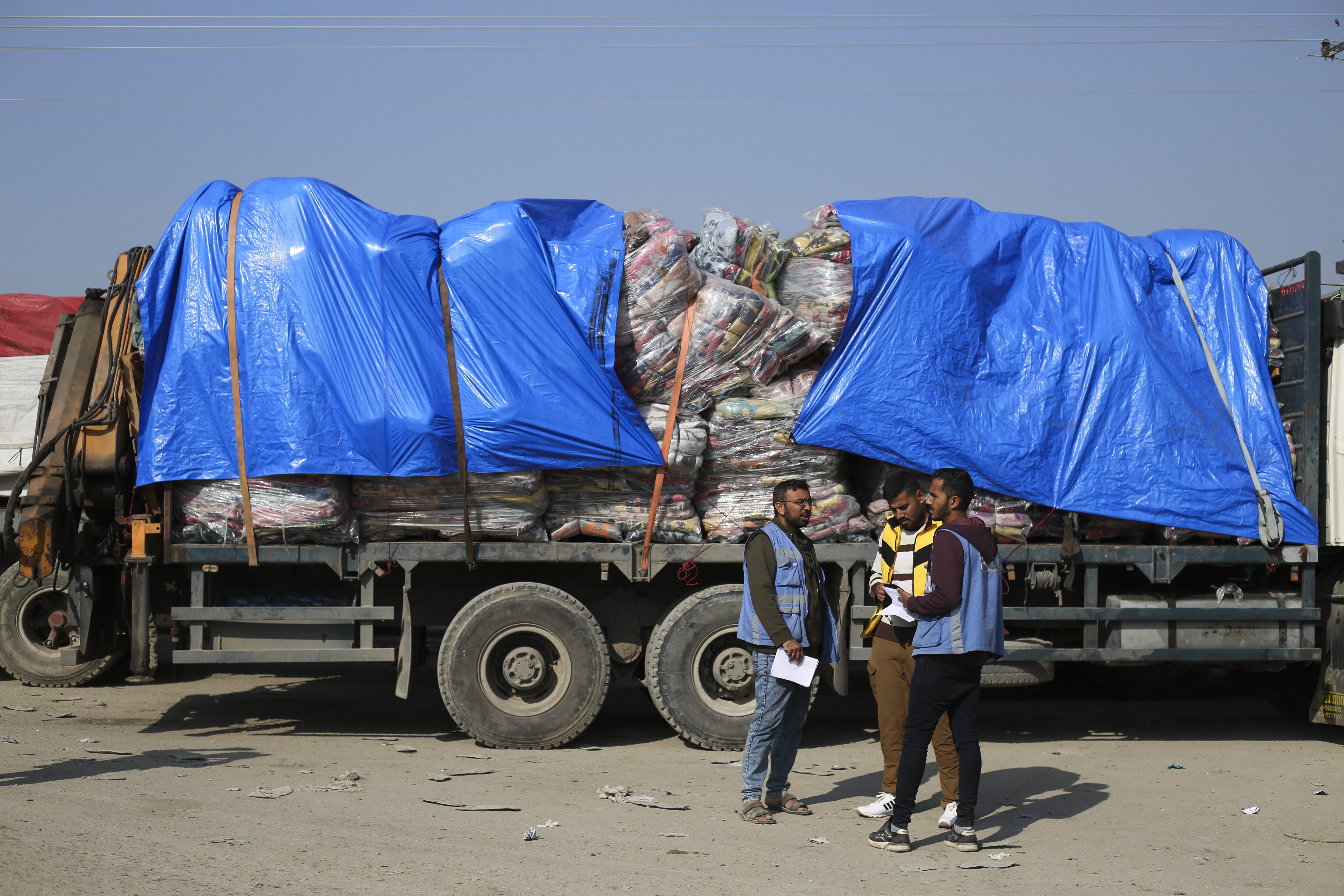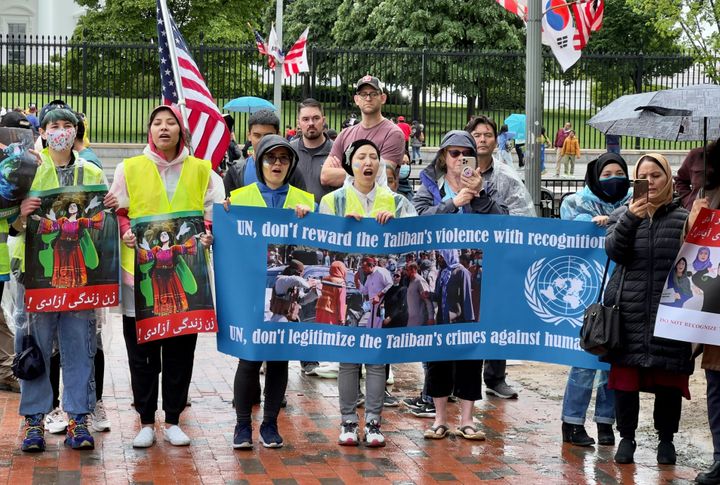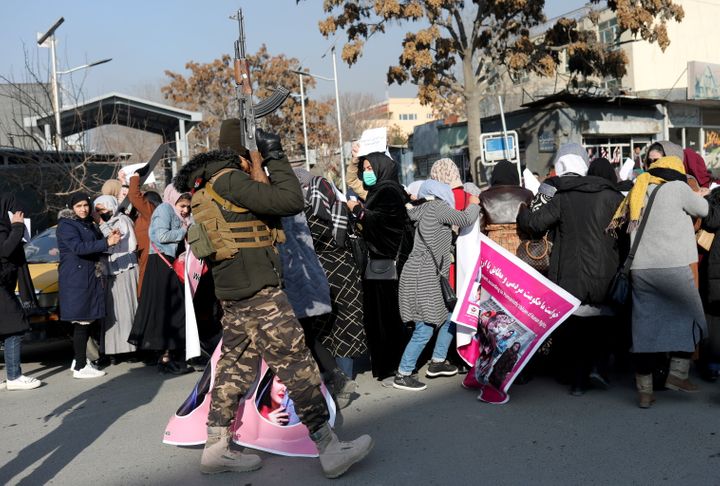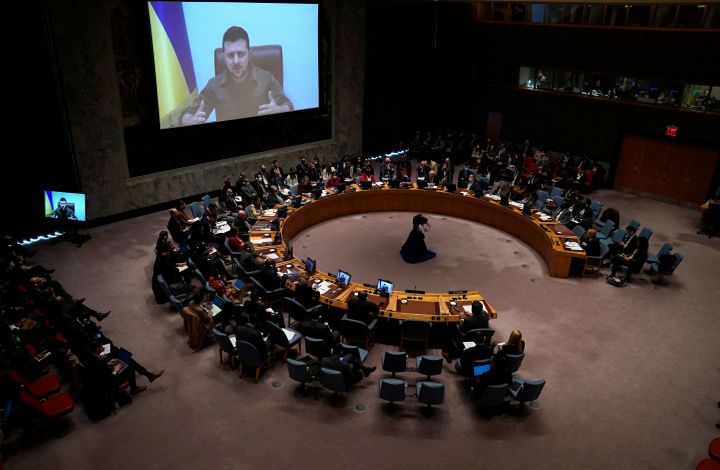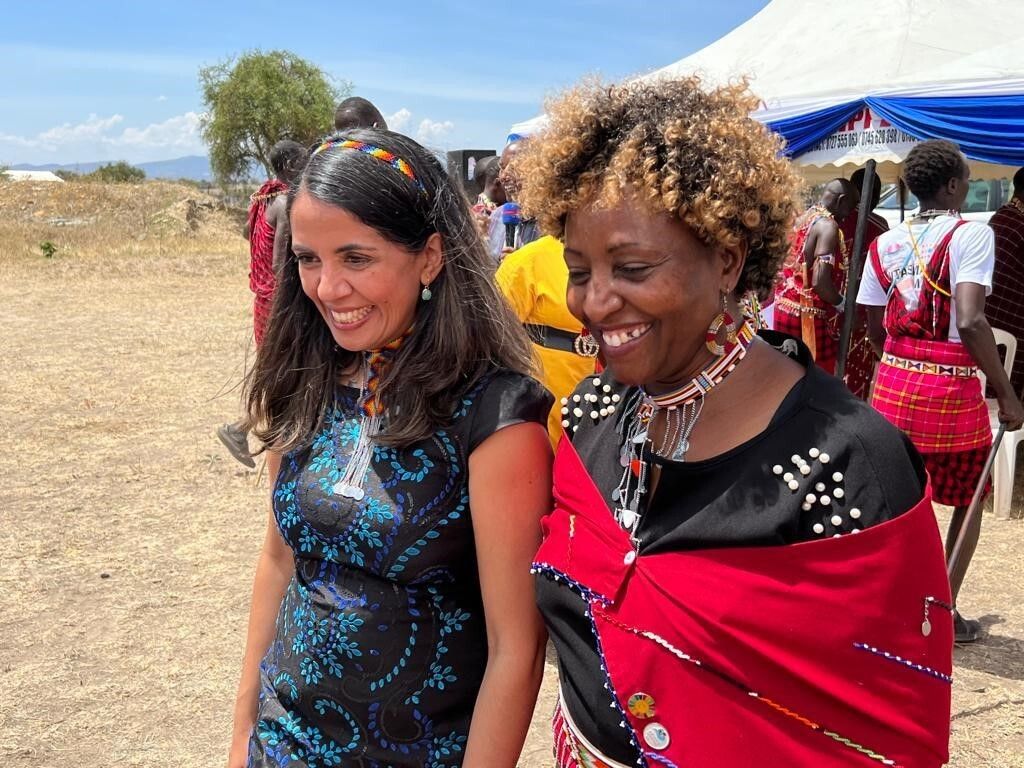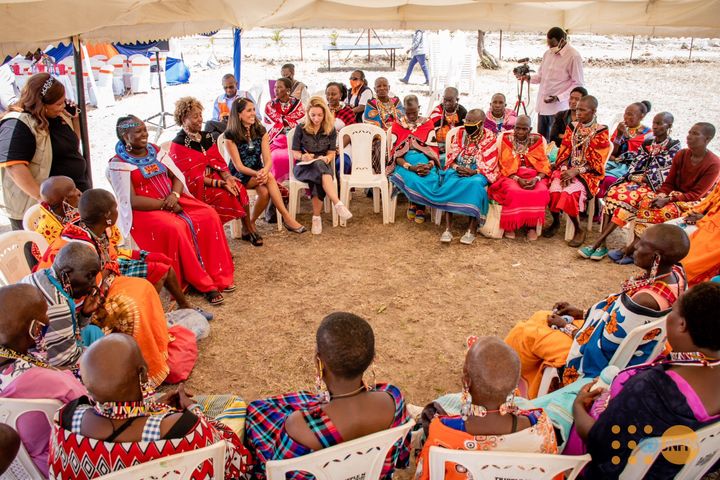A harrowing food insecurity report has concluded that famine is “imminent” in northern Gaza, as millions of starving Palestinians face “catastrophic” food conditions in the territory amid Israel’s continued blockade of humanitarian aid.
The Integrated Food Security Phase Classification (IPC) report was released on Monday by the World Food Program. The IPC is an international process for estimating the scale of hunger crises, and serves as one of the international community’s primary sources for food insecurity data around the world.
Advertisement
According to the report, North Gaza and area governorates are projected to meet the definition of famine ― the IPC’s fifth and most severe phase of acute food insecurity ― anytime between now and May. In North Gaza, food security and malnutrition have become crises at the most dire level of the IPC’s scale.
Gaza’s southern governorates of Deir al-Balah, Khan Younis and Rafah are presently classified as IPC Phase 4 (Emergency) situations in the report. These governorates, however, face a risk of famine through July in a worst-case scenario, according to the data.
Per the ICP, Gaza’s entire population of 2.23 million people are enduring high levels of acute food insecurity. About half of those people are expected to suffer “catastrophic conditions” if Israeli forces launch their planned ground offensive into the packed southern city of Rafah.
Advertisement
“The upward trend in non-trauma mortality is also expected to accelerate, resulting in all famine thresholds likely to be passed imminently,” the group’s report said.
In December, the IPC warned that there needed to be an immediate reduction of hostilities and an increase in humanitarian access in order to prevent a “realistic chance” of starvation in Gaza. The agency’s analysis at the time said that Gaza’s crisis is “the highest share of people facing high levels of acute food insecurity that the IPC initiative has ever classified”.
“If no steps are taken to cease hostilities and to provide more humanitarian access, famine is imminent,” Beth Bechdol, deputy director-general of the United Nations’ Food and Agriculture Organization, said Monday. “It could already be occurring. Immediate access is needed to facilitate delivery of urgent and critical assistance at scale.”
Gaza’s current crisis stems from Israel’s ongoing military campaign launched after Hamas militants attacked that country on October 7, killing about 1,200 people and taking roughly another 250 hostage. More than five months later, the Gaza Health Ministry ― which has a record of providing casualty figures that closely reflect the UN’s own ― reports that Israeli forces have killed more than 31,000 Palestinians, wounded nearly 73,400, displaced almost the entire population and blocked civilians from accessing most aid deliveries of food, water, fuel and medicine.
The dire situation in Gaza is “simply unbearable” and “unjustifiable”, according to Hiba Tibi, country director for aid group CARE International in Gaza and the West Bank. “Our earlier fears that more would die in Gaza from hunger, dehydration and disease than from bombs, were well-founded, sadly. Starvation is cruel. It is a slow and painful death.”
Advertisement
“Our partners who run health centres in Northern Gaza have reported that the number of children categorized as having moderate or severe malnutrition nearly doubled in February, compared to January. Their staff report watching children get thinner and thinner as the days go by and of kids who can barely speak and walk due to starvation,” she continued. “We also hear of kids being born and dying in shelters without even being registered in the hospitals. It’s like they don’t exist.”
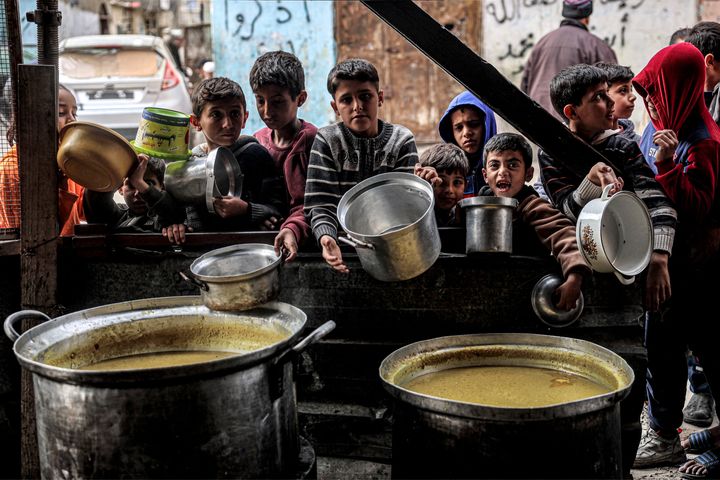
Said Khatib/AFP via Getty Images
The UN Children’s Fund recently warned that life-threatening malnutrition was “spreading fast”, supported by the IPC’s report detailing how adults in Gaza have reduced their meals so their children can eat. The FAO said that at least 10 times in the last month, almost two-thirds of northern Gaza households went “entire days and nights” without eating.
Northern Gaza was the first target of Israel’s invasion, and has become the centre of the territory’s humanitarian crisis, with much of the region completely destroyed. A third of children under two years of age in the north are acutely malnourished, according to the FAO, and the Gaza Health Ministry said last week that 27 Palestinians, mostly children, had died of malnutrition in the north.
Monday’s report confirms what aid groups have been trying to convey to the world about the starvation crisis facing Palestinians in the territory. The international community has continued to call for a permanent cease-fire, the release of all remaining hostages, accountability for civilian casualties and the safe passage and distribution of more aid to Palestinians.
Advertisement
“From the destruction of farms, flour mills and food processing sites, to ongoing fighting preventing the safe movement of humanitarian actors, to the blocking of aid, the people of Gaza are being starved to death. What’s worse, they have all too often been killed in attacks when seeking out food to keep their children alive,” Tjada D’Oyen McKenna, CEO of the aid group Mercy Corps, said in a statement, stressing that the denial of humanitarian access violates international law.
“We cannot wait for an official famine declaration in Gaza to act when it is abundantly clear that people are and will continue dying from hunger and malnutrition,” she continued. “Today’s report must be a wake-up call for all parties with leverage over Israel to dramatically change course. Gazans cannot wait any longer.”

